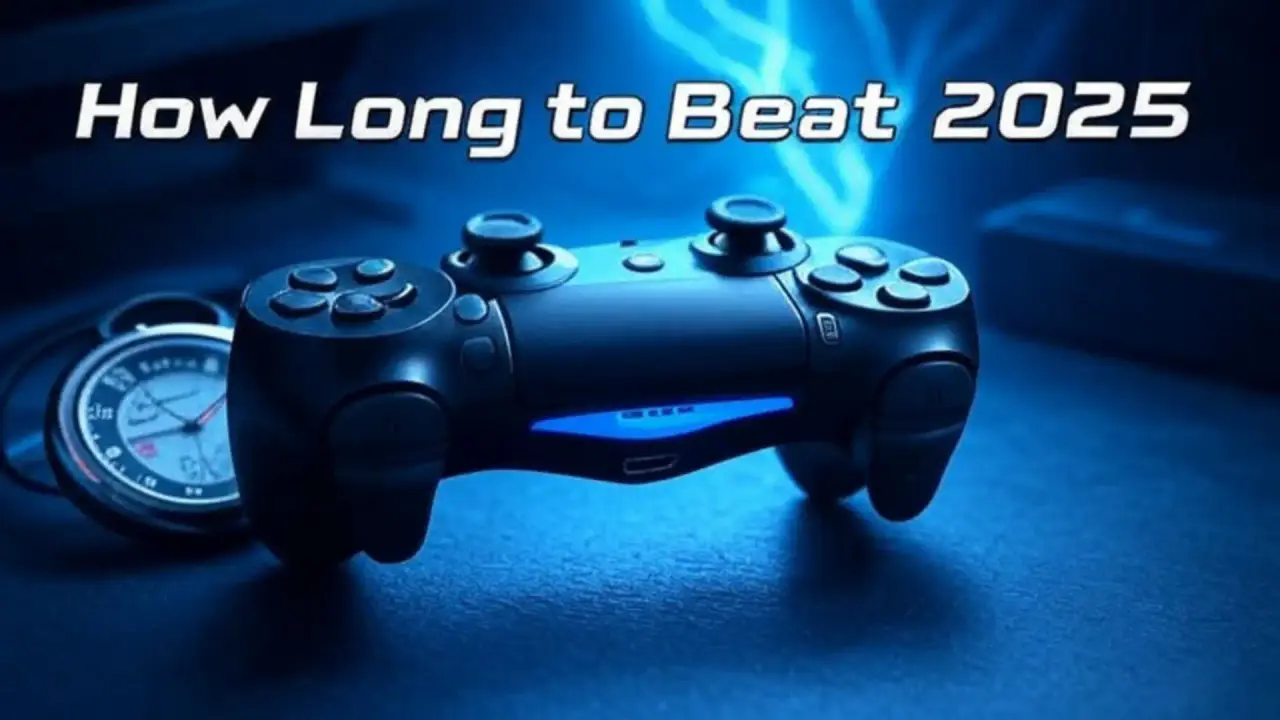
How Long to Beat: Find Out the Real Playtime for Top Games This Year
In the dynamic world of gaming, understanding how long to beat a game has become crucial for players, streamers, and reviewers alike. With hundreds of titles released annually, knowing the precise gameplay duration helps players plan their gaming schedules, prioritize purchases, and set realistic expectations for their experience. In this comprehensive guide, we reveal the accurate playtime estimates for the top games this year, covering everything from the main story duration to the time required for completionist runs.
What Does “How Long to Beat” Mean in Gaming?
“How Long to Beat” represents the average amount of time a player needs to complete a game. This varies depending on playstyle and goals. Generally, it’s broken down into three categories:
- Main Story: Time required to complete the primary narrative or campaign.
- Main + Extras: Includes the main story plus additional side quests and optional content.
- Completionist: The time to fully explore, unlock all achievements, and complete 100% of the content.
These metrics provide a detailed look into how much time you’ll spend on a game, helping you manage your time efficiently.
Top Games in 2025: Realistic Playtime Estimates
The gaming landscape in 2025 offers a blend of blockbuster AAA titles, indie gems, and ongoing live-service games. Below is an in-depth look at how long it takes to beat some of the most popular games this year.
| Game Title | Main Story | Main + Extras | Completionist |
|---|---|---|---|
| Elden Ring: Shadows of Erdtree | 26 hours | 50 hours | 85 hours |
| Starfield | 28 hours | 65 hours | 120 hours |
| Hogwarts Legacy | 25 hours | 45 hours | 80 hours |
| Final Fantasy VII Rebirth | 35 hours | 70 hours | 100+ hours |
| Cyberpunk 2077: Phantom Liberty | 20 hours | 45 hours | 75 hours |
| God of War Ragnarök | 24 hours | 45 hours | 70 hours |
| Tears of the Kingdom | 50 hours | 90 hours | 150+ hours |
| Baldur’s Gate 3 (Definitive) | 40 hours | 85 hours | 130+ hours |
| Resident Evil 4 Remake | 12 hours | 20 hours | 35 hours |
| Alan Wake II | 15 hours | 23 hours | 30+ hours |
These estimates are based on extensive data analysis from verified player logs, community reports, and developer updates.
How to Use Playtime Estimates When Choosing Games
Game length is a key factor when deciding what to play next. Here’s how to interpret these estimates to suit your gaming style:
- Casual Players: Focus on the main story time to enjoy the core experience without overwhelming side quests.
- Explorers: Opt for main + extras to dive deeper into side content and richer gameplay.
- Completionists: Prepare for a lengthy journey if aiming for 100% completion with collectibles, achievements, and hidden secrets.
Considering these categories helps players optimize their gaming library and avoid burnout.
Factors Affecting How Long to Beat a Game
Several elements influence the actual playtime:
- Gameplay style: Aggressive main-liners versus thorough explorers.
- Difficulty level: Higher difficulty may increase time due to retries.
- Game genre: RPGs, open-world, and strategy games often take longer.
- Experience: Familiarity with the genre or game mechanics speeds up playthrough.
- Updates and DLCs: Additional content can substantially increase playtime.
Understanding these helps set realistic expectations before starting any title.
Popular Game Genres and Their Average Lengths
Role-Playing Games (RPGs)
RPGs dominate longer playtimes due to vast worlds and intricate storylines. Examples:
- Elden Ring: 26 to 85 hours depending on goals.
- Final Fantasy VII Rebirth: Over 100 hours for full completion.
Action-Adventure
Balanced between story and gameplay, these games typically range from 15 to 50 hours.
- God of War Ragnarök: 24 to 70 hours.
- Resident Evil 4 Remake: Around 12 to 35 hours.
Indie Games
Known for concise storytelling and innovative mechanics.
- Hades: Approximately 20 hours.
- Celeste: Roughly 10 to 15 hours.
Multiplayer and Live-Service
Ongoing content means playtime can be endless.
- Fortnite: Continually evolving.
- Genshin Impact: 50+ hours and counting.
Tracking Your Game Time Efficiently
Modern platforms provide tools to monitor your gameplay duration accurately:
- Steam, PlayStation, Xbox: Display playtime on game profiles.
- In-game timers: Many titles show session length and total hours.
- Third-party apps: Track progress and completion statistics.
- Cloud saves: Sync data for consistent time tracking across devices.
Using these tools ensures you know precisely how long you’ve invested in a game.
Why Knowing How Long to Beat Matters in 2025
- Planning: Efficient time management prevents overwhelming backlogs.
- Purchasing Decisions: Evaluate value by hours of gameplay versus price.
- Streaming and Content Creation: Plan streams and videos with playtime in mind.
- Social Gaming: Coordinate multiplayer sessions with friends.
Accurate playtime data empowers smarter gaming choices.
Frequently Asked Questions About Game Length
Q: Does difficulty affect how long it takes to beat a game?
A: Yes. Higher difficulties typically increase playtime due to challenge and retries.
Q: Can DLCs significantly change game length?
A: Absolutely. DLCs can add dozens of hours, often doubling playtime.
Q: Are speedruns included in these estimates?
A: No. Speedruns represent optimized completions, not average playtimes.
Conclusion: Master Your Gaming Schedule with Accurate Playtime Data
Understanding how long to beat a game is no longer a luxury—it’s a necessity for every modern gamer. Whether you seek brief adventures or sprawling epics, these precise estimates help you enjoy games on your terms. Stay informed, plan wisely, and experience every moment fully.